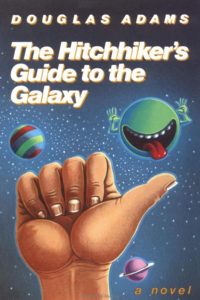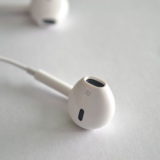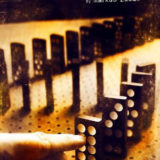The Real Hitchhiker’s Guide to the Galaxy Has Arrived
 It was only a matter of time before Douglas Adams’ Hitchhiker’s Guide to the Galaxy became a reality. That time is now here. You can now purchase a working prototype of a real Hitchhiker’s Guide to the Galaxy, a book you can take anywhere that contains as complete a summary of human knowledge as is currently available. Don’t believe me? Don’t Panic. Just read on.
It was only a matter of time before Douglas Adams’ Hitchhiker’s Guide to the Galaxy became a reality. That time is now here. You can now purchase a working prototype of a real Hitchhiker’s Guide to the Galaxy, a book you can take anywhere that contains as complete a summary of human knowledge as is currently available. Don’t believe me? Don’t Panic. Just read on.
First, does the following description of the the Hitchhiker’s Guide remind you of anything?
In many of the more relaxed civilizations on the Outer Eastern Rim of the Galaxy, the Hitchhiker’s Guide has already supplanted the great Encyclopedia Galactica as the standard repository of all knowledge and wisdom, for though it has many omissions and contains much that is apocryphal, or at least wildly inaccurate, it scores over the older, more pedestrian work in two important respects.
First, it is slightly cheaper; and second, it has the words DON’T PANIC inscribed in large friendly letters on its cover.
Sounds a lot like Wikipedia to me. In the words of Jimmy Wales, founder of Wikipedia, “Imagine a world in which every single person on the planet is given free access to the sum of all human knowledge. That’s what we’re doing.” Wikipedia has always struck me as very similar to the Hitchhiker’s Guide–occasionally inaccurate and sometimes irreverent, but always extremely useful. The only difference between Wikipedia and the Hitchhiker’s Guide to the Galaxy has been the fact that to use Wikipedia you need a computer, cell phone or pda with Internet access. Not any more.
Amazon’s new electronic reading device, Kindle, is nothing less than a Hitchhiker’s Guide to the Galaxy. A lot has been written about Kindle in the past few days, some positive and some negative, but I think people have overlooked how amazing the Wikipedia access is. For less than $400 you can carry around a book-sized device that weighs 10 ounces and that gives you access to every single article in Wikipedia from wherever you are without paying a monthly service charge!
The Kindle requires no computer, no Internet access, no Wi-Fi hotspots, and no monthly subscription. Out of the box, you can access Wikipedia from wherever you get cellular phone service. Amazing. And that’s without even mentioning the main purpose of the device, which is to function as a electronic book reader.
The Kindle is a portable book store and a portable library. You can read books and buy books from anywhere you have cellular reception.
Of course, the Kindle isn’t perfect. As an electronic reading device, it’s still in its infant stages, and I expect it to undergo many refinements and price drops. But the concept is mindblowing.
Imagine students sitting at their desk with a notebook and a Kindle that contains every one of their textbooks. No more lugging heavy backpacks home; no more going to their lockers after every class; the ability to instantly get the definition of any word in their text by selecting it on the Kindle.
Imagine taking students on a field trip to Washington, D.C., New York or places in your own town and having instant access to articles on the Lincoln Memorial, the Empire State Building, or your own local landmarks.
If you can’t tell yet, I love the entire concept. But I do have a few suggestions for Amazon as they go forward with the Kindle:
- Make sure that public domain texts can be converted and used on the Kindle at no charge. Users should be able to take out-of-copyright texts from place like Project Gutenberg and read them on the Kindle without having to pay for them.
- Send ME one, so I can really review it and show it to my students.
- And finally, print the words DON’T PANIC on the cover.
Click on over to Amazon.com to watch several videos about how the Kindle works, and to watch Toni Morrison, Neil Gaiman, Guy Kawasaki and others rave about it.













I agree completely with the article and the comparison between Kindle (just got my Kindle 2) and the Hitchhiker’s Guide – but is it not ironic that Adams’ book isn’t available for Kindle?